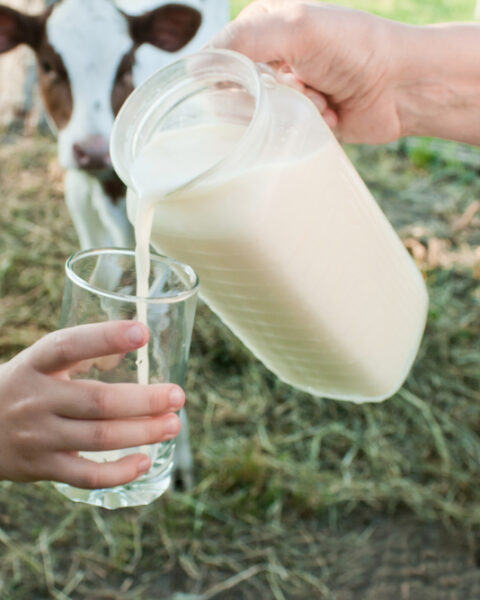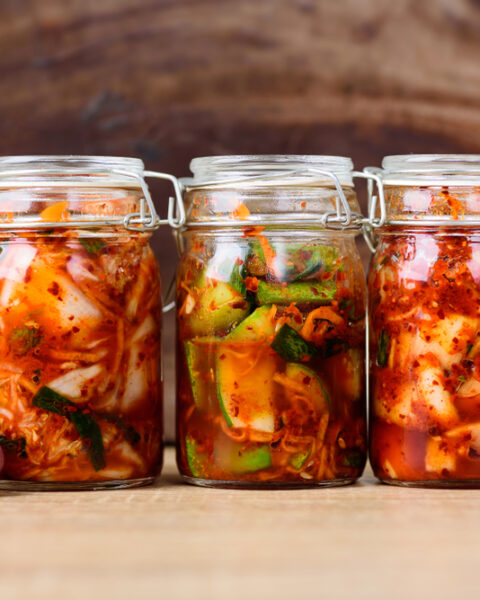Switching to plant-based dairy alternatives doesn’t have to feel overwhelming. There are so many amazing options out there that can fit into your recipes effortlessly. Whether you’re looking for something creamy, nutty, or even slightly sweet, these alternatives have got you covered. They’re perfect for everything from baking to cooking to making your morning coffee taste just right.
Contents
- 1 Almond Milk
- 2 Soy Milk
- 3 Oat Milk
- 4 Coconut Milk
- 5 Rice Milk
- 6 Cashew Milk
- 7 Hemp Milk
- 8 Flax Milk
- 9 Macadamia Nut Milk
- 10 Pea Protein Milk
- 11 Hazelnut Milk
- 12 Quinoa Milk
- 13 Walnut Milk
- 14 Pistachio Milk
- 15 Banana Milk
- 16 More From RetailShout
- 17 15 Best Grocery Deals at Target Right Now
- 18 Top 20 Items You Can Buy at Aldi for $20
Almond Milk
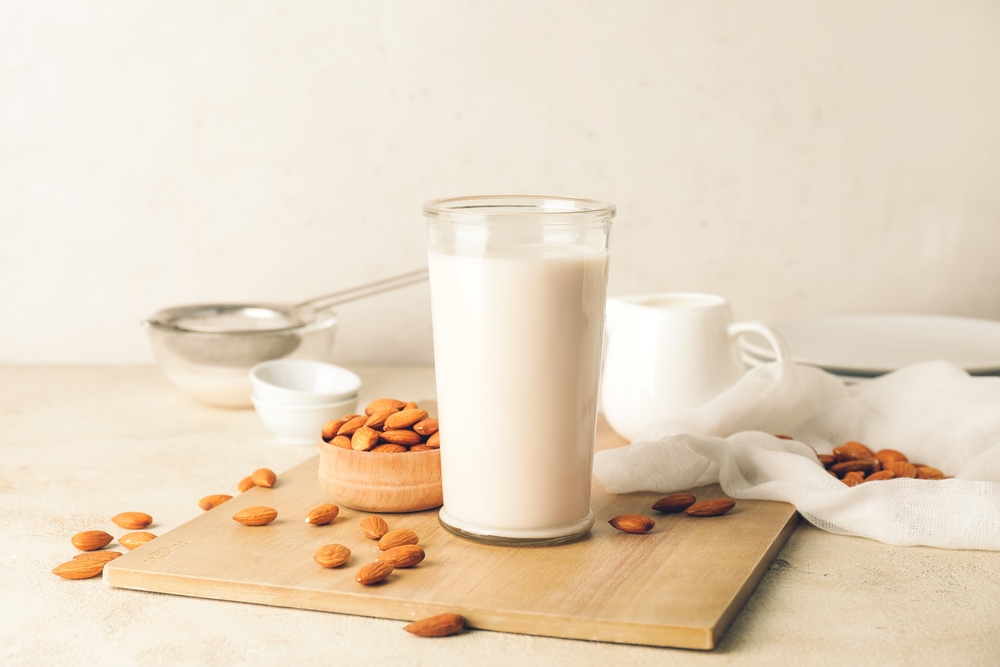
Almond milk is a widely favored plant-based alternative known for its light texture and subtle nutty flavor. It’s versatile, making it suitable for both sweet and savory dishes, such as smoothies, baked goods, and soups. When baking, it can replace cow’s milk in a 1:1 ratio, though its thinner consistency may slightly affect the richness of the final product. Commercial almond milk often contains added sugars and stabilizers, so opting for unsweetened versions is advisable. Additionally, homemade almond milk is an option, allowing control over ingredients and flavor.
Soy Milk
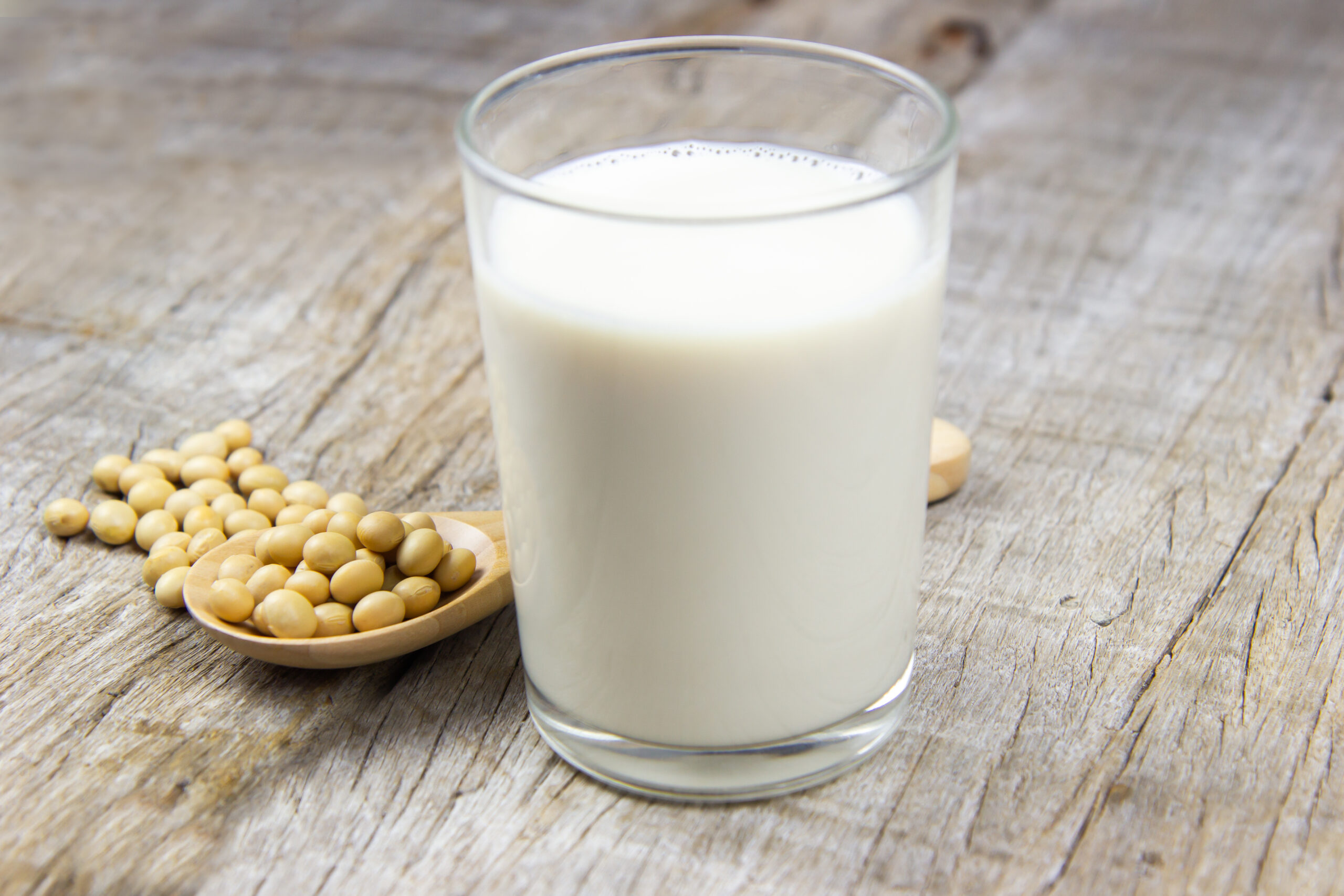
Soy milk, derived from soybeans, offers a creamy texture and neutral taste, closely resembling cow’s milk. Its high protein content makes it particularly effective in baking, providing structure and promoting browning. Soy milk can substitute dairy milk in recipes at a 1:1 ratio, making it a reliable choice for various culinary applications. It’s also suitable for savory dishes like sauces and soups due to its mild flavor. However, some individuals may have soy allergies or prefer to avoid soy products, necessitating alternative options.
Oat Milk
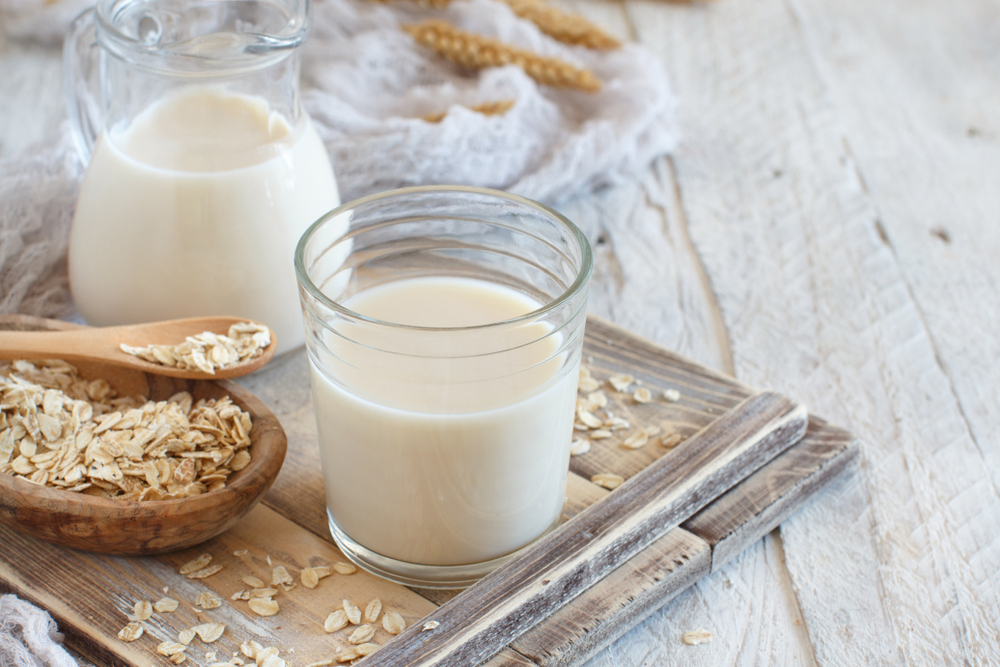
Oat milk is celebrated for its creamy consistency and naturally sweet flavor, making it a popular choice for coffee and cereal. It’s produced by blending soaked oats with water and straining the mixture. In baking, oat milk can replace dairy milk in equal amounts, contributing to a tender crumb in cakes and muffins. Its slightly sweet taste complements desserts but may not be ideal for savory recipes. Oat milk is also a suitable option for individuals with nut allergies.
Coconut Milk
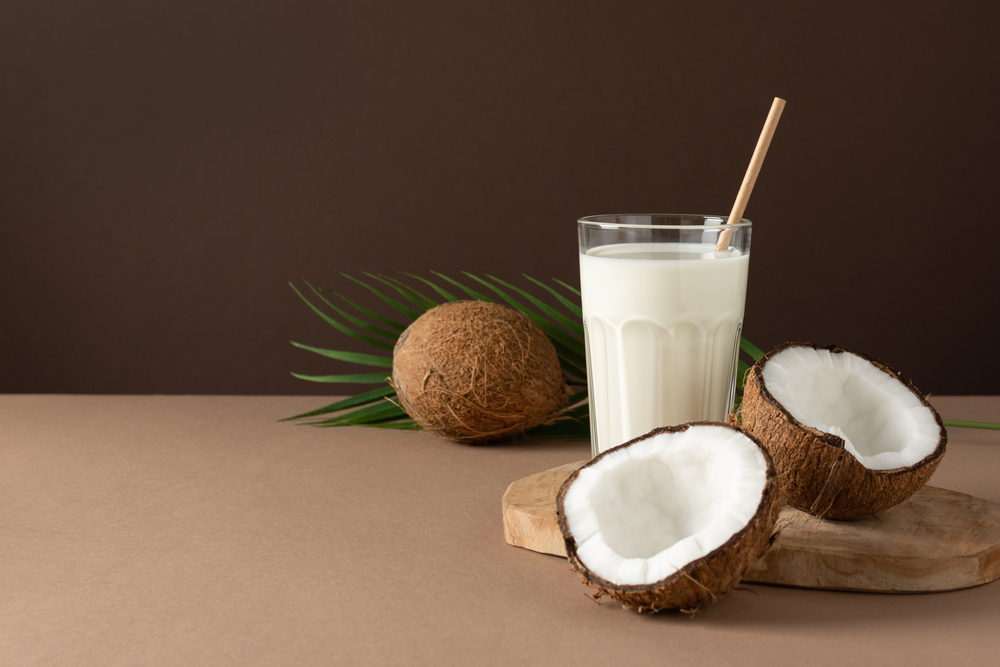
Coconut milk, extracted from the flesh of mature coconuts, has a rich, tropical flavor and creamy texture. It’s available in two forms: canned coconut milk, which is thicker and commonly used in cooking, and carton coconut milk, which is thinner and often used as a beverage. In recipes, coconut milk adds depth to curries, soups, and desserts like rice pudding. Its distinct flavor pairs well with both sweet and savory dishes, but it may overpower milder ingredients. Coconut milk is also higher in saturated fats compared to other plant-based milks.
Rice Milk
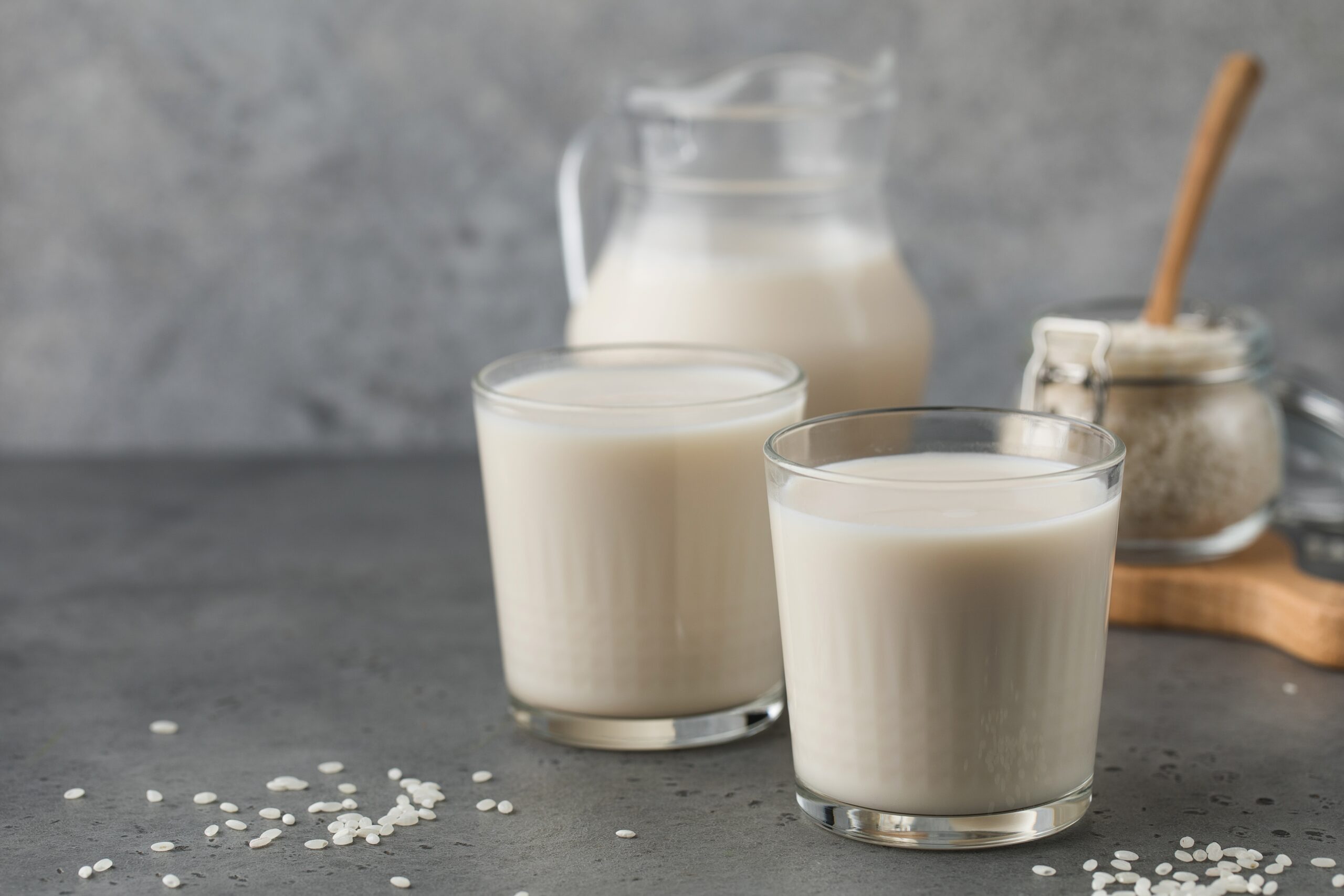
Rice milk is made by pressing brown rice and allowing the natural starches to convert into sugars, resulting in a slightly sweet and thin beverage. It’s a suitable option for individuals with soy, nut, or gluten allergies. In cooking, rice milk works well in light soups, sauces, and baked goods where a delicate flavor is desired. However, its thin consistency may require additional thickening agents in certain recipes. Rice milk is also lower in protein compared to other plant-based milks.
Cashew Milk
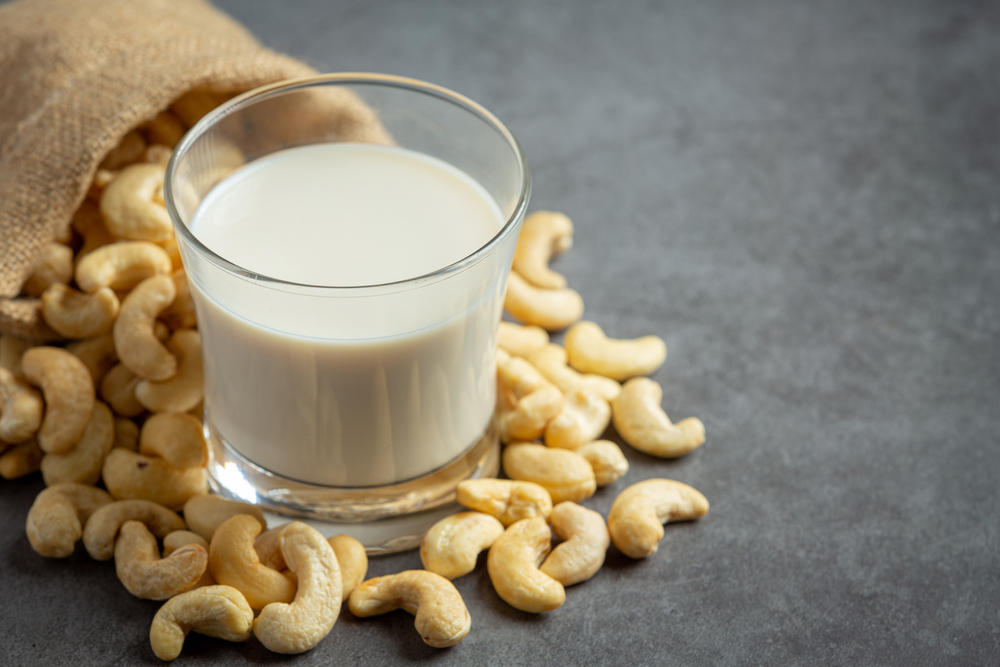
Cashew milk offers a creamy texture and mild, slightly nutty flavor, making it a versatile addition to both sweet and savory dishes. It’s particularly useful in creamy soups, sauces, and desserts like ice cream. In baking, cashew milk can replace dairy milk in a 1:1 ratio, contributing to a rich texture. Homemade cashew milk is easy to prepare and doesn’t require straining, retaining more nutrients. However, commercial versions may contain additives, so checking labels is recommended.
Hemp Milk
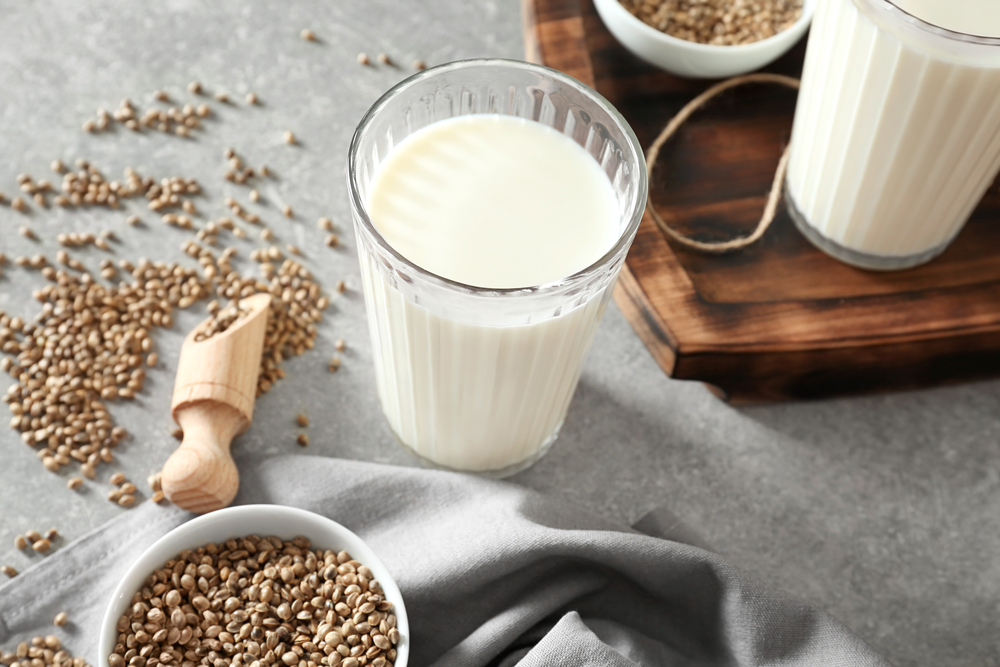
Hemp milk is made from soaked hemp seeds blended with water, resulting in a beverage with a slightly nutty and earthy flavor. It’s a good source of omega-3 fatty acids and contains a moderate amount of protein. Hemp milk’s consistency is similar to cow’s milk, making it suitable for cereals, smoothies, and baking. Its distinct taste may not appeal to everyone, so it’s best used in recipes where its flavor complements other ingredients. Hemp milk is also free from common allergens like soy and nuts.
Flax Milk
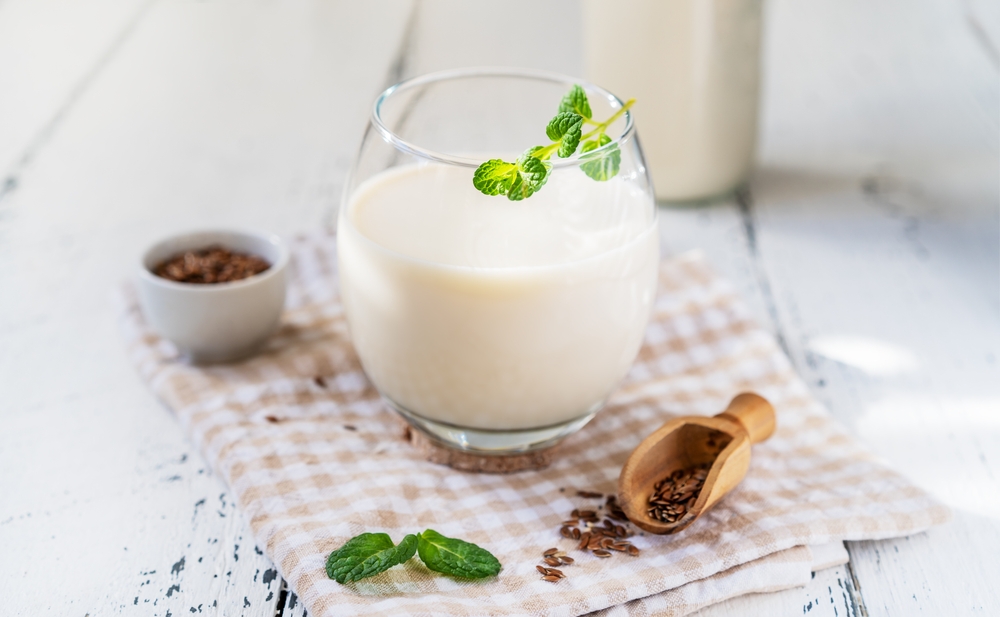
Flax milk is produced by blending cold-pressed flax oil with filtered water, resulting in a light and smooth beverage. It’s low in calories and contains omega-3 fatty acids, making it a heart-healthy option. Flax milk works well in smoothies, cereals, and light baking recipes. However, its thin consistency may not provide the desired richness in creamy dishes. Flax milk is also free from common allergens, making it suitable for those with dietary restrictions.
Macadamia Nut Milk
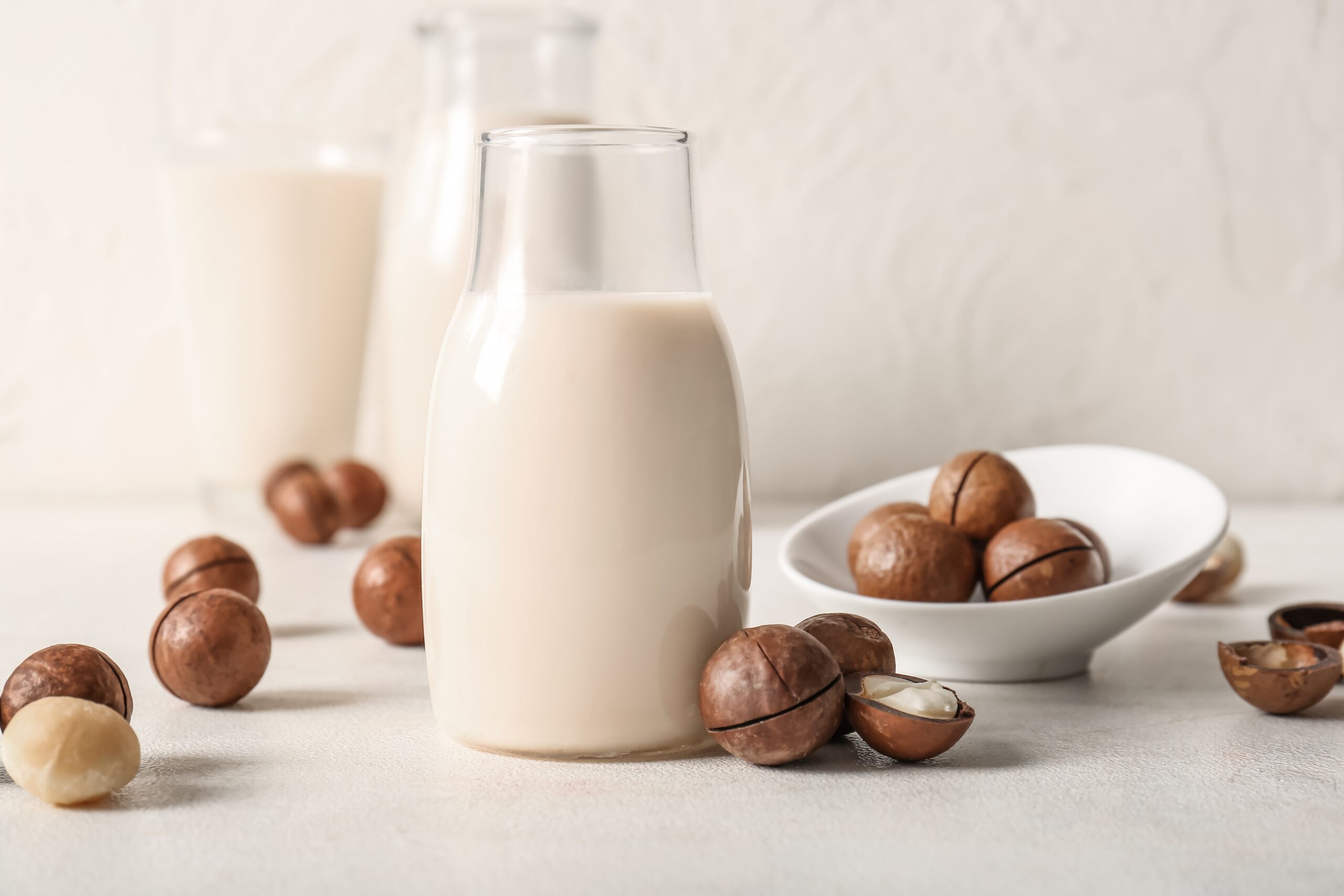
Macadamia nut milk boasts a creamy texture and subtle, buttery flavor, enhancing both sweet and savory recipes. It’s particularly delightful in coffee, smoothies, and baked goods, adding a rich mouthfeel. Macadamia nut milk can substitute dairy milk in a 1:1 ratio, offering a luxurious touch to dishes. It’s also low in carbohydrates, making it suitable for low-carb diets. However, it may be more expensive than other plant-based milks due to the cost of macadamia nuts.
Pea Protein Milk
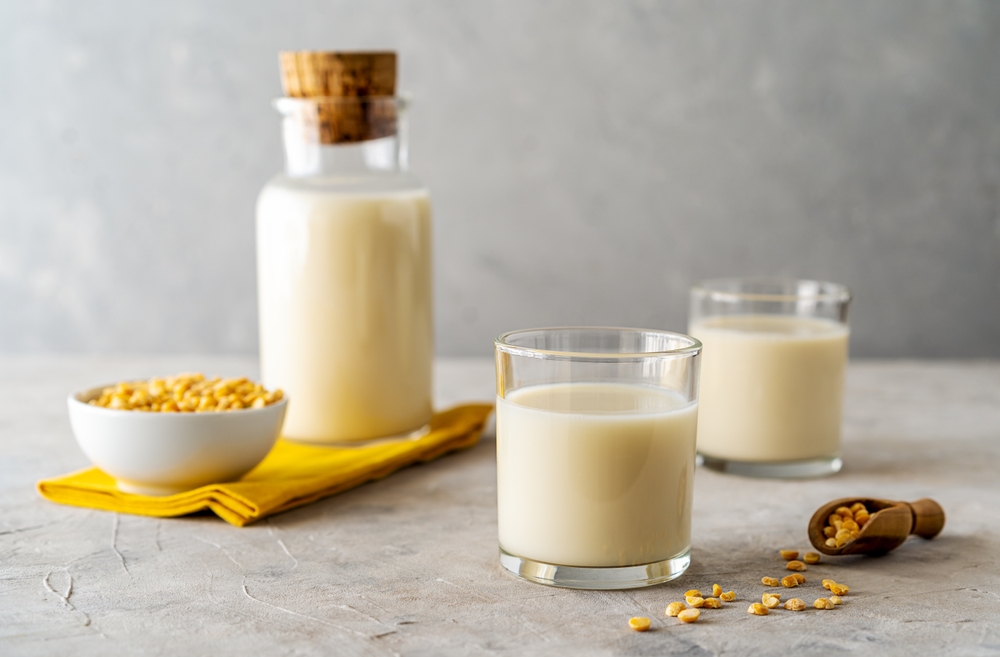
Pea protein milk is crafted from yellow peas, resulting in a neutral-flavored beverage with a creamy consistency. It’s rich in protein, comparable to cow’s milk, making it an excellent choice for those seeking high-protein dairy alternatives. Pea protein milk works well in smoothies, coffee, and baked goods, where its neutral flavor blends seamlessly. It’s often fortified with vitamins and minerals, further boosting its nutritional profile. Additionally, this milk is free from common allergens like nuts, soy, and gluten, making it versatile for various dietary needs.
Hazelnut Milk
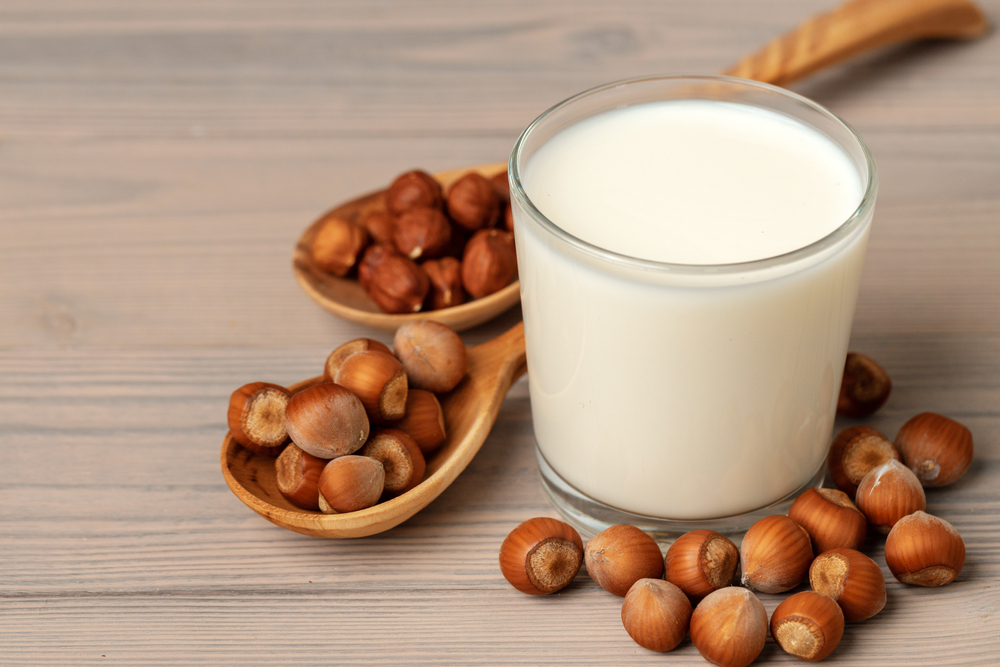
Hazelnut milk stands out for its distinctly nutty and slightly sweet flavor, making it a popular choice for desserts and beverages. It works beautifully in recipes like hot chocolate, coffee, and baked treats, adding depth and richness. In savory dishes, its pronounced flavor might be overpowering, so it’s best reserved for complementary recipes. Hazelnut milk is lower in protein compared to some other plant-based options but rich in healthy fats. It’s a delightful indulgence for those who enjoy the taste of hazelnuts in their meals and drinks. (thekitchn.com)
Quinoa Milk
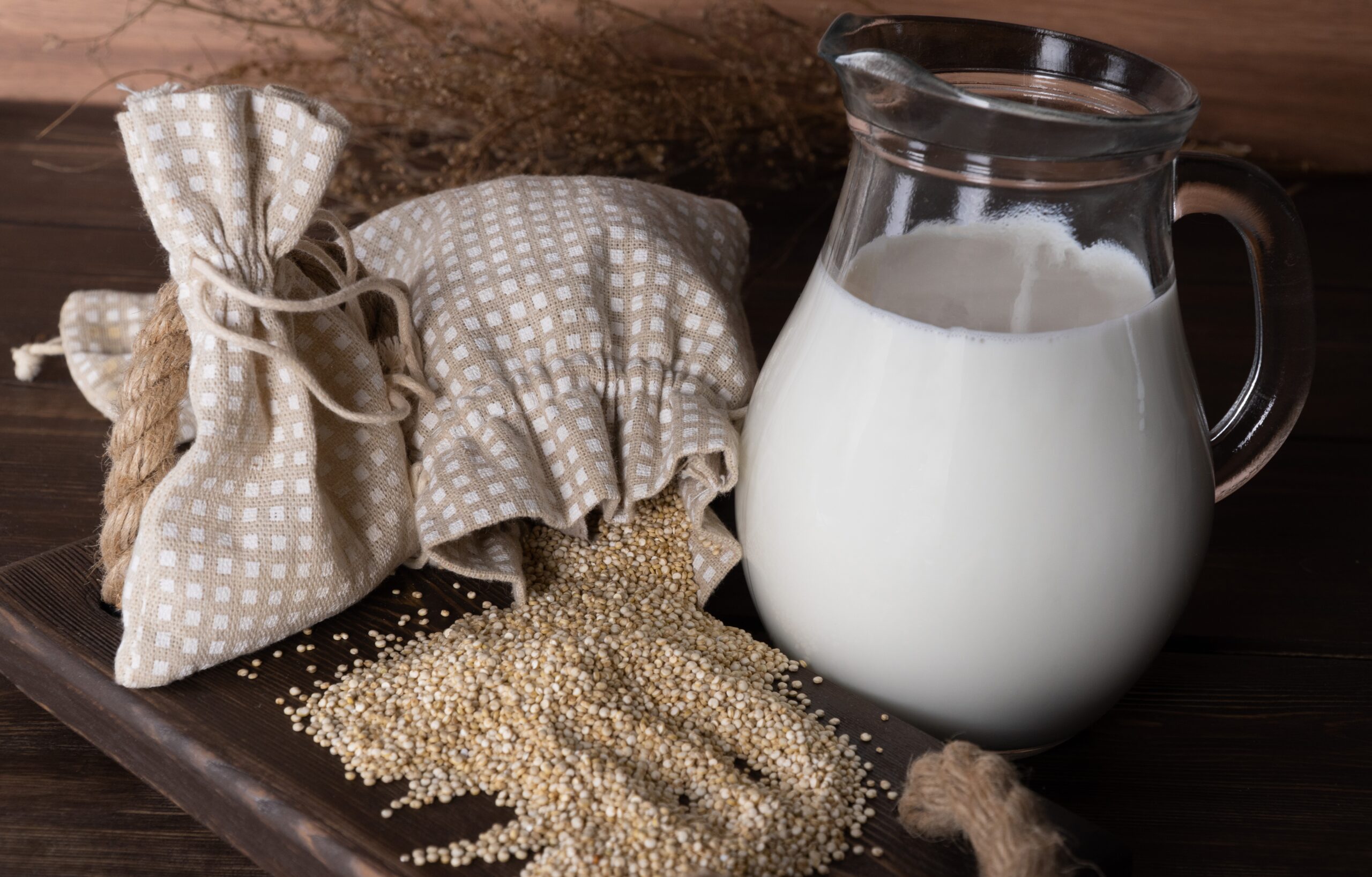
Quinoa milk is made from the nutrient-rich quinoa grain, offering a slightly nutty and earthy flavor. It’s a good source of protein and contains essential amino acids, making it a complete protein option. Quinoa milk can be used in smoothies, cereals, and baking, though its unique taste may not suit every recipe. It’s naturally gluten-free and a suitable alternative for those with gluten sensitivities. This milk is less common in stores but can be made at home by blending cooked quinoa with water and straining it. (healthline.com)
Walnut Milk
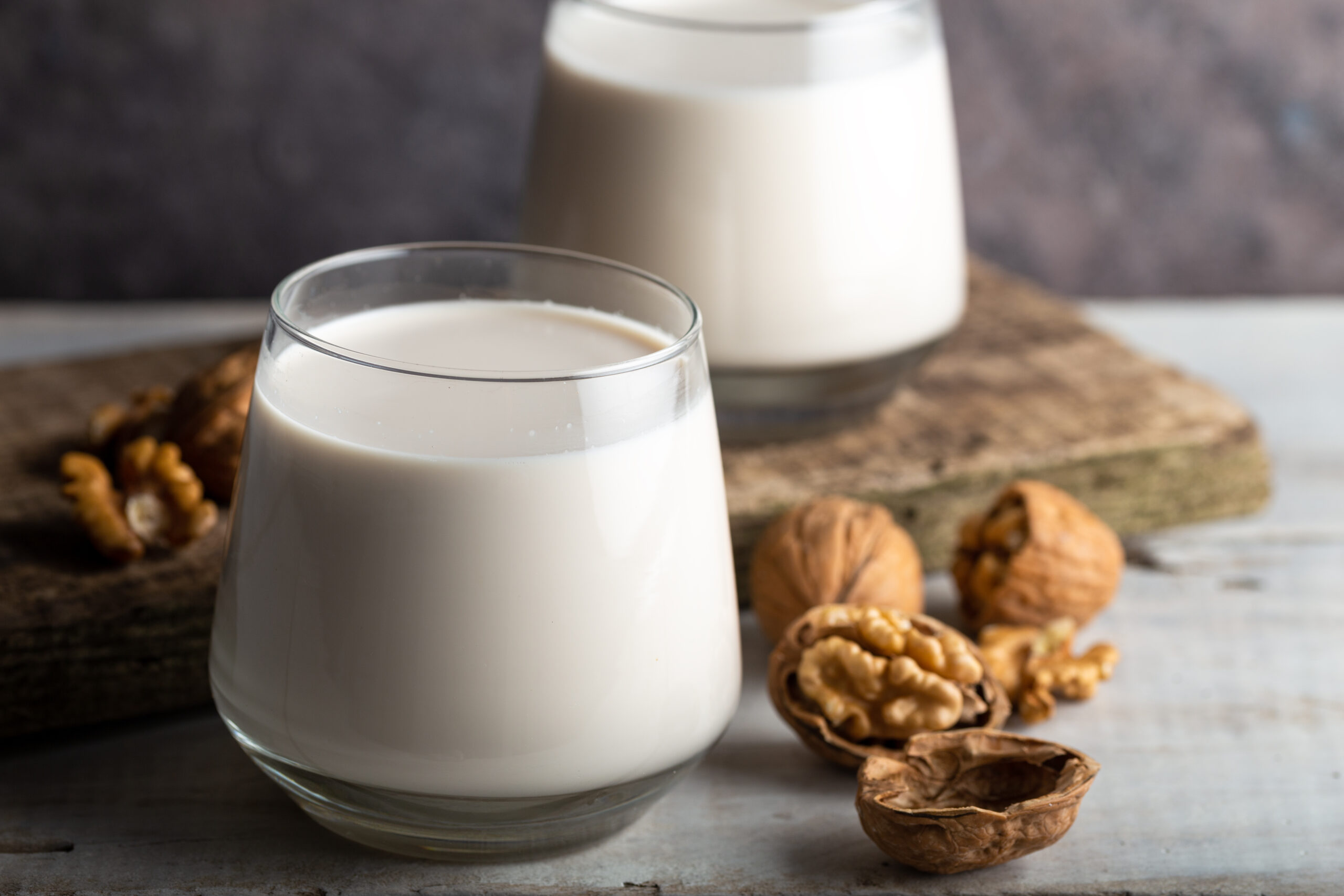
Walnut milk offers a rich, nutty flavor and is known for its smooth and creamy texture. It’s a great addition to coffee, oatmeal, and desserts, enhancing their taste with its distinctive nutty notes. Walnut milk is a good source of omega-3 fatty acids, promoting heart health. While its bold flavor may not suit every savory recipe, it shines in dishes where its nuttiness complements the ingredients. Homemade walnut milk is simple to prepare, giving you control over its sweetness and additives.
Pistachio Milk
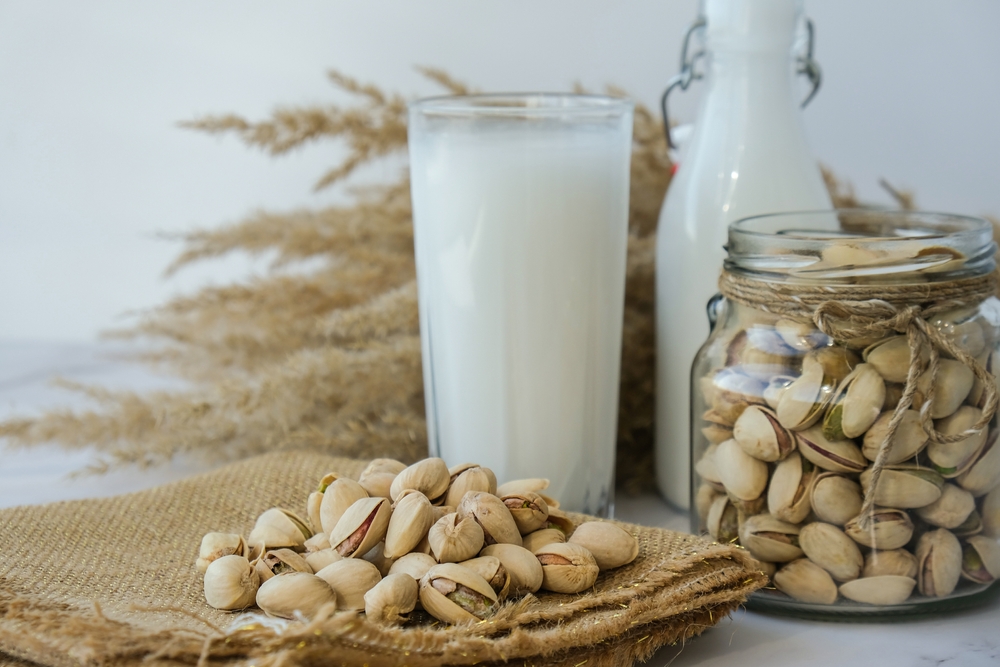
Pistachio milk is prized for its light green hue and subtly sweet, nutty flavor. It’s a luxurious addition to smoothies, coffee, and baked goods, providing a unique taste and creamy texture. This milk is lower in calories compared to some other nut-based options and contains healthy fats and vitamins. Its distinct flavor profile makes it a gourmet choice for specialty recipes and desserts. While less common in stores, pistachio milk can be made at home using blended pistachios and water.
Banana Milk
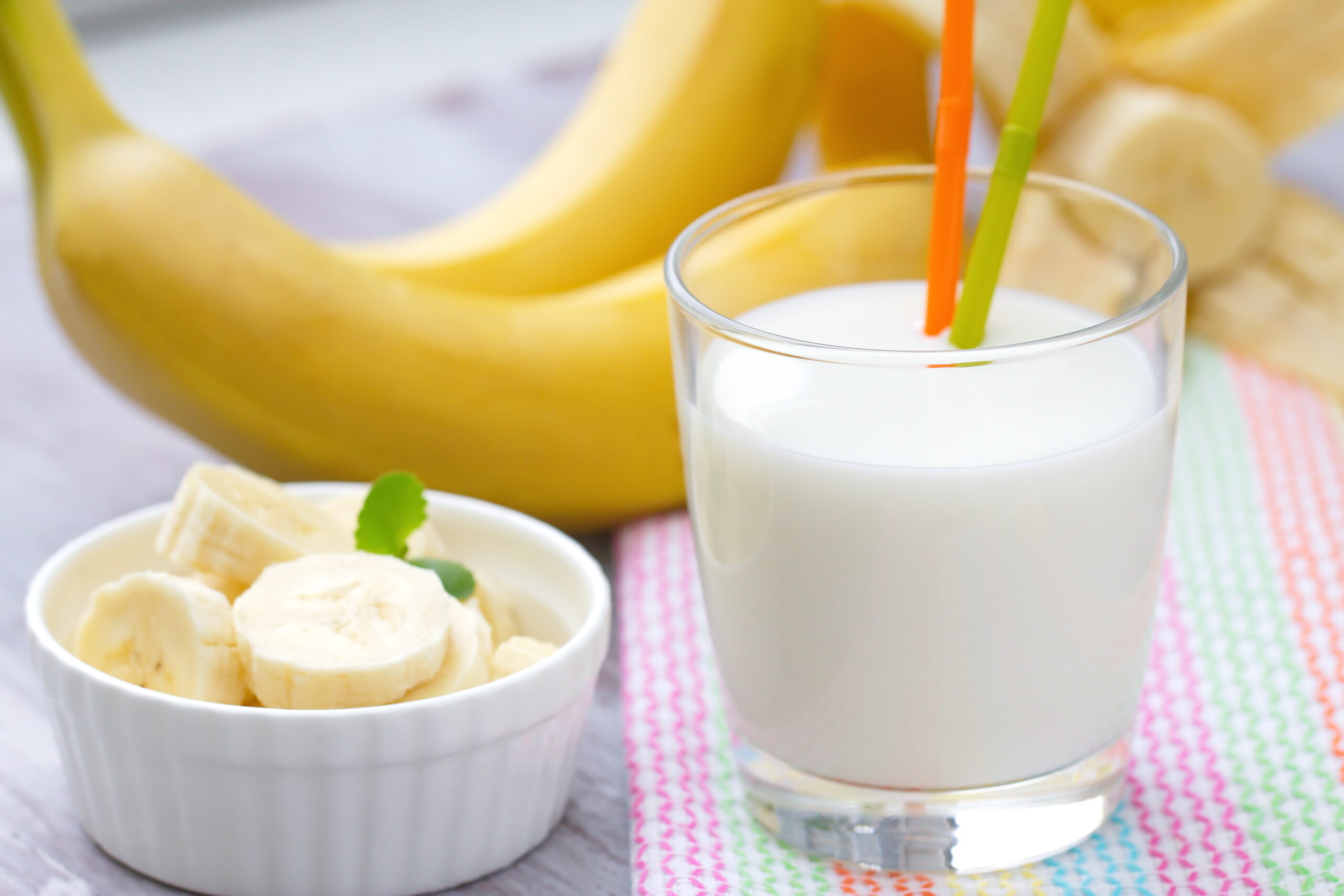
Banana milk is a fruity and naturally sweet plant-based milk alternative made by blending bananas with water. It’s a fun and nutritious option for smoothies, cereal, and desserts, adding a tropical twist to recipes. Due to its sweetness, banana milk works best in sweet dishes and may not be suitable for savory cooking. It’s free from allergens like nuts and soy, making it accessible for those with dietary restrictions. Additionally, it’s simple to prepare at home and can be flavored with cinnamon or vanilla for extra indulgence.
This article originally appeared on RetailShout.
More From RetailShout
10 Aldi Holiday Finds Perfect for Hosting and Gifting

The holiday season is here, and Aldi has outdone itself with a lineup of festive finds perfect for making your celebrations extra special. Whether you’re hosting family dinners, throwing a party, or looking for unique gifts, they’ve got something for everyone. Read More.
15 Best Grocery Deals at Target Right Now

Shopping smart is all about finding the right deals, and Target has some of the best grocery savings around at the moment. Whether you’re stocking up on household basics or filling your fridge with fresh ingredients, Target’s deals can help you cut costs. Read More.
Top 20 Items You Can Buy at Aldi for $20
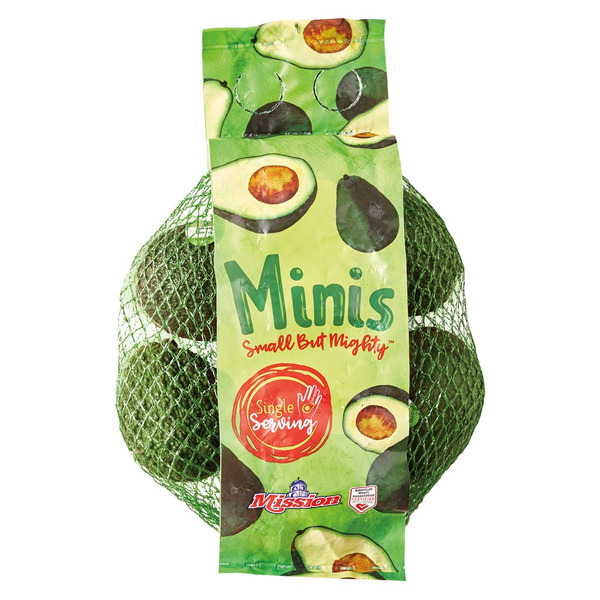
Aldi is known for offering great deals on everyday essentials, and you don’t need a big budget to walk away with some great finds. With just $20, you can fill your cart with a variety of groceries that keep you well-fed and satisfied. Read More.



